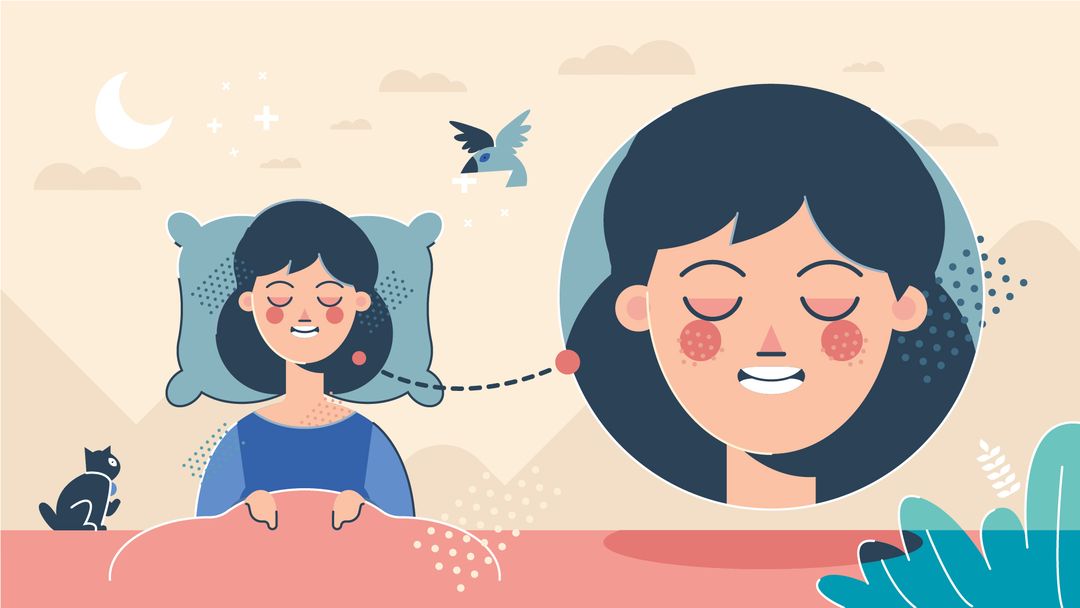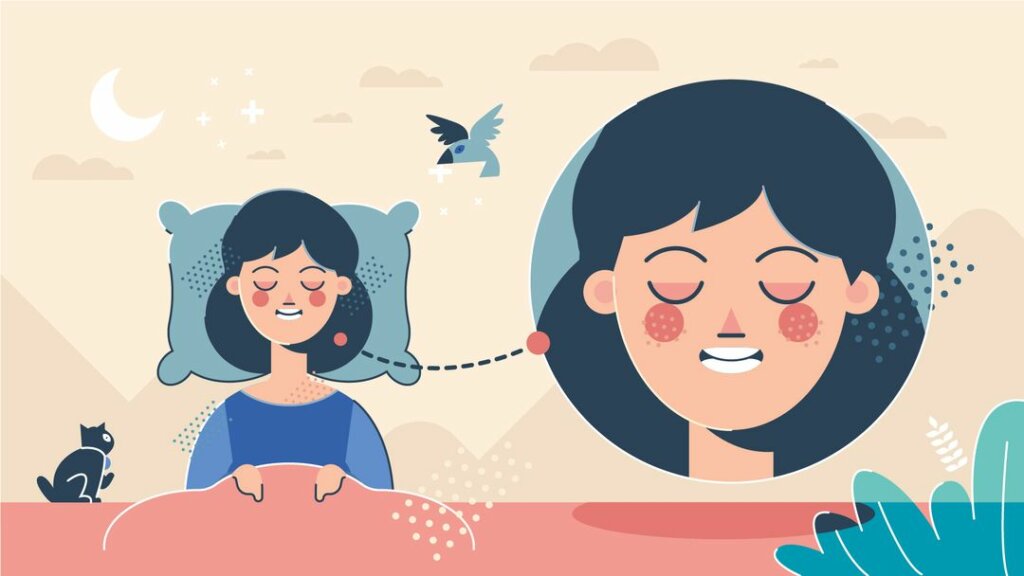Have you ever felt so angry with someone that when you read their texts or emails, you don’t even realize you’re furrowing your brows and clenching your jaw? Or maybe you’re watching a really tense game and all you can think about is whether your team will pull off a miracle shot and win?
The scientific term for these physical responses of jaw clenching and teeth grinding is bruxism. There are two types of bruxism: diurnal (while awake) and nocturnal (while asleep). This sleep disorder can affect both children and adults, and is believed to be partly genetically determined. For this 101, we’ll focus on nocturnal or sleep bruxism.
The American Sleep Disorders Association defines sleep bruxism as “stereotyped movement disorder characterized by grinding or clenching of the teeth during sleep.” Experts agree that more studies are needed to determine its cause, but here is what we know so far.
Can’t sleep and don’t know why? Check out our Complete Guide to Sleep Disorders with symptoms, causes, and treatments on over twenty types of sleep disorders.
Quick Facts – Teeth Grinding or Sleep Bruxism
Frequency: 7.5% of adults* globally
Risk Factors: High levels of anxiety in children, family history, other sleep-related disorders such as night terrors and obstructive sleep apnea
Nature: Physical
Treatment: Biofeedback, medication, relaxation techniques, oral or dental appliances, continuous positive airway pressure (CPAP)
Symptoms – Teeth Grinding or Sleep Bruxism
Sleep bruxism typically doesn’t pose any immediate medical risks, save for oral and dental health. Due to repeated teeth grinding, those with bruxism can have chipped or cracked teeth and worn tooth enamel. This can lead to increased tooth pain and sensitivity, and other dental issues.
Below are the most common signs of nocturnal bruxism.
- No knowledge or awareness of teeth grinding while asleep
- Jaw pain or discomfort when waking up
- Clenching or grinding the teeth typically occurs during sleep arousals, i.e. short sleep interruptions that last for 3-15 seconds
- Tooth wear and increased pain and sensitivity
- Headaches and earaches
Causes – Teeth Grinding or Sleep Bruxism
There are still no known definite causes of nocturnal teeth grinding or sleep bruxism. While psychological factors like stress and anxiety contribute to diurnal bruxism, whether these factors have the same level of correlation—if at all—with nocturnal bruxism remains a debate. That said, here are some oft-cited possible causes of sleep bruxism.
- Perceived psychological stress – A study using stress-related biomarkers in the saliva found higher levels of cortisol (the “stress hormone”) among people with sleep bruxism
- Genetics and family history of bruxism
- Dental issues, especially concerning jaw alignment
- Obstructive sleep apnea (OSA)
- Excessive caffeine and alcohol consumption – Some scientists suggest that stimulants like caffeine and downers like alcohol can aggravate bruxism symptoms. Others argue that evidence for this is inconclusive.
Treatment – Teeth Grinding or Sleep Bruxism
Mild or occasional bruxism usually does not require treatment. In a lot of cases, with kids especially, this behavior goes away on its own.
For adult onset sleep bruxism, studies show it often coexists with other sleep disorders like sleep terrors or obstructive sleep apnea. In these cases, treatment not only addresses sleep bruxism, but also targets the other underlying sleep disorders or conditions.
Below is a short list of treatment options proven effective to curb or altogether eliminate the symptoms of sleep bruxism.
- Biofeedback – This method involves using stimuli (vibratory, auditory, or electrical) to make the patient aware of their teeth grinding.
- Relaxation and stress reduction techniques
- Oral or dental appliance – In cases of severe sleep bruxism that leads to worn enamel and other dental issues, a dentist may recommend using a night guard to protect the teeth.
- Continuous positive airway pressure (CPAP) – Among patients with both obstructive sleep apnea and sleep bruxism, CPAP machines have been found effective in eliminating symptoms from both disorders.
How You Will Overcome Teeth Grinding or Sleep Bruxism
Parents of children with sleep bruxism will be glad to know that the National Sleep Foundation research cites this condition as something that goes away on its own. They also posit that most cases of adult sleep bruxism exhibit improvements with stress reduction.
If your bed partner’s nocturnal teeth grinding gets too loud, you can lightly nudge them to alert them of their grinding so they can stop. You can also use a white noise machine to help both of you sleep better. Remember: you’re not doomed to have sleepless nights forever!
Whether it’s using a CPAP machine, wearing a mouthguard to bed, or managing stress, there is always something you can do and tools you can use to help you achieve deeper, more restful sleep.
Did you know?
This article is part of our Complete Guide to Sleep Disorders – A resource that will help you get your quality sleep back. Click here to learn more about sleep disorders, their causes, symptoms and how to overcome them.



